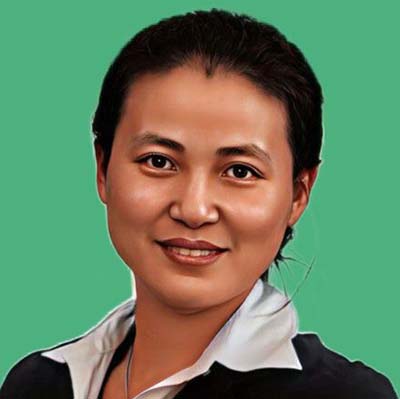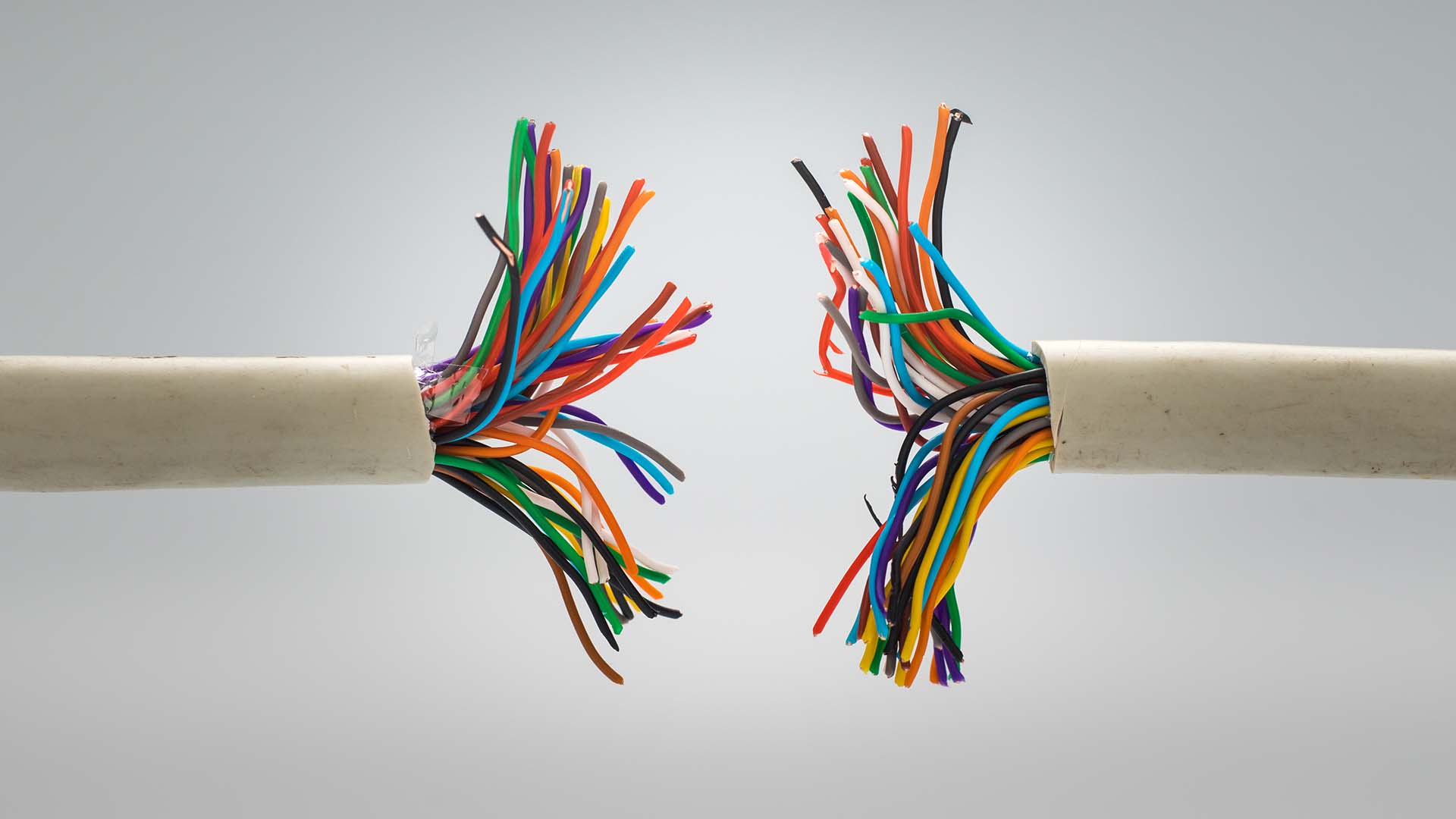

- Jessie Li
- Treasurer, Angel Aligner

- Liqiong Shen
- Global Cash Management Expert, BNP Paribas
Positioning for Rapid Global Expansion
When Angelalign Technology Inc. (hereinafter referred to as ‘Angel Aligner’), a Chinese orthodontics technology company, began its international expansion, it needed a banking partner that would keep pace with its rapid growth. The relationship grew in tandem with the needs of the business, giving Angel Aligner – and its customers – plenty of reasons to smile.
Angel Aligner develops products that fit like a mouthguard and straighten teeth without the need for braces. Its pursuit of alignment also extends to its treasury team and is how the company found a bank that fits perfectly with its global expansion and rapidly developing needs.
The company was founded in 2003 in China and developed the first clear aligner solution for the market. During the past two decades it has invested heavily in technology and has been at the forefront of innovation. Back in 2011 Angel Aligner was using 3D printing for mass standardised production, and, more recently, it has been combining data and ML to improve patient outcomes. In 2020, it began construction of a state-of-the-art research and development and manufacturing centre called Chuangmei Center in Wuxi, China.
This strategy has reaped rewards and Angel Aligner is the leader of clear aligner technology in its home market of China. From this strong position, it has pursued international expansion and targeted advanced orthodontics markets – in Europe, Australia and the Americas – where its high-quality products would be appreciated. Along the way, it has reached several milestones. For example, in June 2021, Angel Aligner listed on the Hong Kong Stock Exchange. And in 2022, the company bought a 51% stake in Aditek, a leading player in Brazil’s orthodontics market.
Since then, Angel Aligner has been growing rapidly. According to its annual report for 2023, its case numbers reached 245,000 with year-on-year growth of around 33% and the company’s adjusted net profit reached Rmb179m ($25m). The company expects these numbers to increase as global demand for its products grows.
Selecting a bank
Angel Aligner has a presence in Europe, Asia Pacific, South America and North America. Its Group Treasurer, Jessie Li, explains how its expansion in Europe began in earnest in 2023. It now operates in a number of continental countries, including Italy, Spain, France, Germany and UK where the entities support sales in each location.
Meanwhile, the French business supports sales to other nations, such as Switzerland, the Nordic countries and Eastern Europe. Because of this, the company’s European headquarters are based in France and this is just one of the reasons why it made sense for Angel Aligner to partner with BNP Paribas in Europe, whose strong presence in that market is well-known.
Li explains that when the company first embarked on its global expansion strategy, it did not have any relationships with foreign banks and relied solely on the local institutions in its home market. From 2022 onwards, the company started to work with a couple of overseas banks and soon discovered there were hurdles to overcome. They experienced delays with the regulatory KYC checks that are necessary when onboarding new customers. “To give you an example, if I open a bank account with foreign banks, the lead time is normally two months, even longer. If I work with local banks, the lead time is one week,” Li points out. “Our business is growing fast, and we didn’t want to wait.”
While the KYC process was being completed for the bank account in France, the company linked the European accounts to its Singapore-based global Ebanking platform, and the transactional banking infrastructure is gradually built up in other European and Asia Pacific countries. This will be extensible in future to the host-to-host solution with support from the bank.
As the company grew internationally, it decided from August 2023 to implement SAP globally, which supported Angel Aligner’s globalisation strategy. “We used a local ERP system before, which could only talk to the local banks and couldn’t do the host to host connection with foreign banks. We saw lots of limitations with it when we expanded globally,” Li admits.
As part of the SAP project, system integration and implementation is critical. BNP Paribas amalgamates host-to-host connectivity for efficient integration of payments and collections files from Angel Aligner’s ERP (SAP) to BNP Paribas’ global banking platform Connexis for Angel Aligner’s accounts in Singapore, Hong Kong, France, Spain, Italy, Germany and the United Kingdom. In order to improve connectivity efficiency, BNP Paribas proposed a single point of connectivity, through which Angel Aligner is able to streamline and consolidate all transactional processes from different countries onto an integrated and robust banking platform.
In order to support the project in a more effective and efficient way, BNP Paribas coordinated the implementation across countries and regions from Singapore instead of through various different countries or regions. With dedicated and coordinated effort, the project went live on the regional host to host solution in a short three months period. The host-to-host solution offers Angel Aligner improved visibility and control over cash via consolidated and centralised reporting, ease of access to comprehensive reports and payment status.
Angel Aligner chose to use BNP Paribas as one of its primary banks in Europe. The relationship with BNP Paribas extended over time. “Right at the beginning, we started with the basic banking products to meet our requirements such as payments and collections,” recalls Li.
Solving reconciliation issues
The company’s changes to its ERP system and the rapid growth in business was carried out in parallel with the ramping up of its banking needs. Li explains that the company mostly sells to orthodontists, as well as sales agents, and as the business grew there was a pressing need to complete reconciliations efficiently. When the products are sold directly to the practitioners this creates a high volume of relatively-low value transactions. “We had a high demand for ultra auto-reconciliation – especially for the collections,” explains Li.
Reconciling high volumes of transactions is difficult if the task can only be carried out by manually checking bank statements. Li explains that a solution was discussed with her banking partner, Liqiong Shen, Global Cash Management expert, BNP Paribas, who showed how a solution could be found with the host-to-host arrangement and receiving information in specific fields. By working internally with its IT team and BNP Paribas implementation team, Angel Aligner was able to match the information with the invoices. “Based on this we could tailor our system and build auto reconciliation,” says Li. Now the company has almost 100% auto reconciliation, with some exceptions, which is a vast improvement.
Removing the collections burden
Angel Aligner has also been setting up a SEPA direct debits solution and is using the BNP Paribas Easy Collect mandate management tool. This will also dramatically improve how the company collects payments from its customers in an efficient way with least cost in the long run.
“Our collection effort is cumbersome. Every customer has has a credit term and the customer service team monitors customer collections closely. If a customer fails to make payment on time, our customer service team will need to call that customer monthly or even weekly if the payment is overdue. Given the number of customers, this takes a lot of time for the team,” outlines Li. Setting up direct debits with the customer so the payment can be collected each month directly from their bank account will remove this burden. For any unpaid direct debit, BNP Paribas also provided an auto representation function to systematically improve the successful collection rate.
Li explains that this process is not straightforward in Europe: it’s not the case – as it is in some markets – of just knowing the bank account number from which the payments are coming. The customer has to sign a mandate, and this legal step needs to be completed before moving on to setting up the direct debit. With the Easy Connect tool, this process is fully digitised. The company’s platform is linked to the Easy Collect tool, and once the customer selects direct debt as the payment method, the customer will be directed to sign the mandate automatically, after which the tool generates the collection instruction for the customer to approve, and then the instruction is sent to the customer’s bank. Shen explained that BNP Paribas has a mature SEPA Direct Debit creditor solution, named Easy Collect, which helps their clients to select the direct debit date, reduce the collection cost, avoid the card expiry date issue and also facilitate the company’s auto reconciliation. This API based solution allows Angel Aligner to fully integrate the solution into their e-commerce platform. The strong fraud management mechanism ensures the security of the whole collection flow. BNP Paribas’ SDD implementation team in Paris strongly supported the client to allow for a short-term turnover to cover the multiple countries requirement.
“It is very important for us because the number of customers we have is growing and we would like to make sure this procedure can be managed more automatically. If we can have the direct debit, it means that Angel Aligner has better control over our collections and can take a proactive position,” Li explains.
Angel Aligner is currently exploring extending this capability into other currencies. Li says that the company is now growing in the Nordic region and Eastern Europe, and the next step is for the company to manage the FX with more currencies, such as the Swiss franc, Swedish krona, Danish krone and Polish złoty.
BNP Paribas’ Shen explains that since Angel Aligner is using the euro as its main collection account, while during its expansion the collection could be in different currencies, depending on where their business footprint extends, it makes sense for it to use an FX plan that is incorporated into the payment and collection function to support the x-currency transactions easily without having numerous accounts. This enables the business to automatically convert the different foreign currencies into its main currency account, Shen explains. “In the future, when sales grow very quickly with enough volume, we could propose setting up some dedicated currency accounts to help the business entities to collect and they can arrange the FX transactions at their disposal and own frequency. This can be arranged easily with our platform.”
The objective, explains Shen, is to have centralised treasury management to manage the company’s global operations efficiently. “Our intention is to provide as many automated solutions as possible, whether it is the payment collection services, or FX-related services, to help them have self-service automated solutions.”
Playing the cards right
Another requirement the company had was for a purchasing, or procurement, card (p-card) for larger-ticket items. Li wanted this to be managed centrally. “In Europe, we are mainly based in France and also have a presence in other countries. We looked at how we could centralise our card management through one platform – not multiple connections – and how to have a single point of contact,” Li recalls.
Angel Aligner approached a handful of banks to discuss how to do this. Li says: “The discussions with BNP Paribas went smoothly and they understood our request not only for the corporate credit card but also for p-cards, how to deal with and improve our working capital. We have marketing events a few times a year and the credit card is not enough. We need a p-card that can be used to make deposits for hotel rooms, for the meeting venue and so on,” says Li.
She continues: “And so BNP Paribas came up with a solution where it can support us in a centralised way in Europe, which means the transaction can be managed regardless of the location of the cardholder, whether our colleagues using the cards are in Spain or in Italy.”
Building a partnership
Throughout its growth and international expansion, Angel Aligner has come to rely on its banking partner. “I really appreciate the relationship and the support that BNP Paribas has given us,” says Li.
Although the relationship started off with only basic services, when Angel Aligner reached out with requests, the company found it had quite complex requirements. For example, with the p-card, it initially thought of issuing the card in multiple countries: “We discussed the possibility of issuing the Italian card from the Italian branch, and the Spanish card from the Spanish branch, but that would have created a lot of work for both parties. In the end, we opted for making it as simple as possible. We issue every card through a single platform so everything can be centralised.”
In cases such as these, Li explains, it never felt like they were going to the bank with a request and it being a ‘yes or no’ answer. Li says BNP Paribas was always willing to discuss requirements and tailor the solution to Angel Aligner’s needs. “The more open and transparent you are in discussions with your bank, the better the feedback. With BNP Paribas, it feels as if it is a real partnership,” Li concludes.



